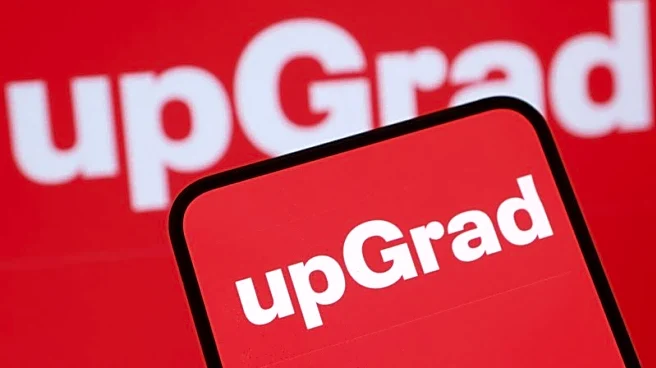What's Happening?
A financial expert has emphasized the importance of avoiding excessive debt for college education, suggesting alternatives such as scholarships, trade schools, state schools, and community colleges. The expert argues that attending a prestigious college is not the sole path to a successful career, and that mindset and drive are crucial factors. Parents are encouraged to set up 529 savings plans to prepare for future educational expenses, which can be used for various education-related endeavors even if the child decides not to attend college.
Why It's Important?
The rising cost of college education in the U.S. has led many students and families to incur significant debt, impacting their financial stability post-graduation. By exploring alternative educational paths and financial planning strategies, individuals can mitigate the long-term financial burden associated with student loans. This approach not only promotes financial literacy but also encourages a broader perspective on career success beyond traditional college education. Stakeholders such as educational institutions, policymakers, and financial advisors may need to consider these insights to address the student debt crisis effectively.
What's Next?
As awareness grows about the financial implications of college debt, there may be increased advocacy for policy changes to make higher education more affordable. Educational institutions might expand scholarship opportunities and partnerships with trade schools to offer diverse career paths. Financial advisors could play a pivotal role in guiding families on effective savings strategies, such as 529 plans, to prepare for future educational expenses. Additionally, there could be a shift in societal perceptions regarding the value of non-traditional educational routes.
Beyond the Headlines
This discussion highlights the ethical considerations of promoting expensive college education as the primary route to success, potentially leading to financial strain for many families. It also underscores the cultural shift towards valuing diverse educational and career paths, which may redefine success in the modern economy. Long-term, this could influence the educational landscape, encouraging institutions to innovate and adapt to changing societal needs.











